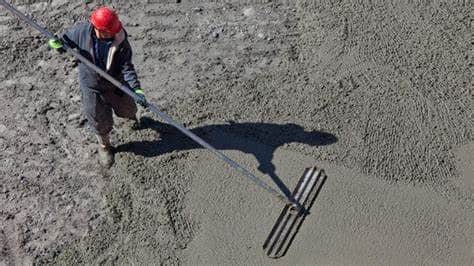Why Concrete Is Suitable For All Climates In El Cajon?

- Concrete possesses excellent thermal mass properties, allowing it to absorb, store, and release heat slowly. In cold climates, concrete structures can absorb heat during the day and release it at night, helping to maintain a more stable indoor temperature. On the other hand, in hot climates, concrete’s density and thermal inertia can contribute to keeping interiors cooler during the day. Additionally, incorporating insulation materials with concrete can enhance its energy efficiency, making it adaptable to a wide range of temperature fluctuations.
- Concrete’s composition makes it highly resistant to extreme temperature variations. Unlike materials that may weaken or degrade under freezing and thawing cycles, concrete maintains its structural integrity. This durability is particularly valuable in regions with harsh winters or scorching summers, where other materials might degrade over time. Concrete’s ability to withstand these temperature extremes contributes to its suitability for all climates.
- In climates with high humidity, excessive moisture can wreak havoc on buildings. Concrete’s inherent properties make it resistant to moisture penetration, reducing the risk of mold growth, rot, and structural damage. This makes it an ideal choice for areas prone to heavy rainfall or high humidity levels. Properly designed and constructed concrete structures can effectively manage moisture, providing a long-lasting and low-maintenance solution for a variety of climates.
- Concrete is a non-combustible material, making it highly fire-resistant. In areas with a high risk of wildfires or urban conflagrations, concrete buildings offer a significant advantage. They can help contain the spread of fires and provide a safer environment for occupants. This fire-resistant characteristic adds to concrete’s suitability for a broad range of climates where fire hazards may pose a threat.
- Concrete’s versatility allows it to be adapted to various climates through thoughtful design and construction techniques. For instance, adding admixtures can enhance its resistance to specific environmental challenges. In regions prone to earthquakes, reinforced concrete structures can provide added safety. In coastal areas, concrete can be formulated to resist saltwater corrosion. This adaptability ensures that concrete remains a viable option regardless of the unique challenges posed by different climates.
FAQs
Does Concrete Require Special Maintenance In Certain Climates?
While concrete is known for its durability, some climates might demand specific maintenance. In humid regions, regular inspection for signs of moisture-related issues is recommended. Similarly, in areas with heavy snowfall, ensuring proper drainage to prevent ice buildup is important.
Is Concrete Environmentally Friendly In All Climates?
Concrete production does have an environmental impact due to the energy-intensive process of cement production. However, its durability, thermal mass properties, and potential for recycling can contribute to its sustainability, regardless of the climate.
Can Concrete Buildings Be Energy-efficient In Extremely Cold Climates?
Yes, concrete’s thermal mass can be effectively utilized to create energy-efficient buildings in cold climates. By combining proper insulation, passive solar design, and efficient heating systems, concrete structures can maintain comfortable indoor temperatures without excessive energy consumption.
Conclusion
Concrete’s ability to thrive in a variety of climates is a testament to its remarkable qualities. From its thermal mass properties to its fire resistance, concrete offers a solution that transcends geographical boundaries. By adapting its composition and construction techniques, concrete structures can withstand the challenges posed by different climates while providing longevity, safety, and comfort to their occupants. Whether in the frigid north or the sweltering south, concrete remains a reliable and enduring choice for builders and architects worldwide. For more information, contact Concrete Contractor El Cajon at (619) 473-4433.